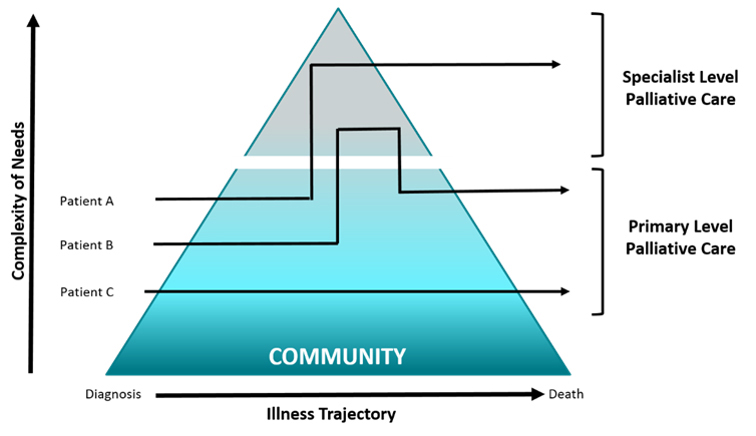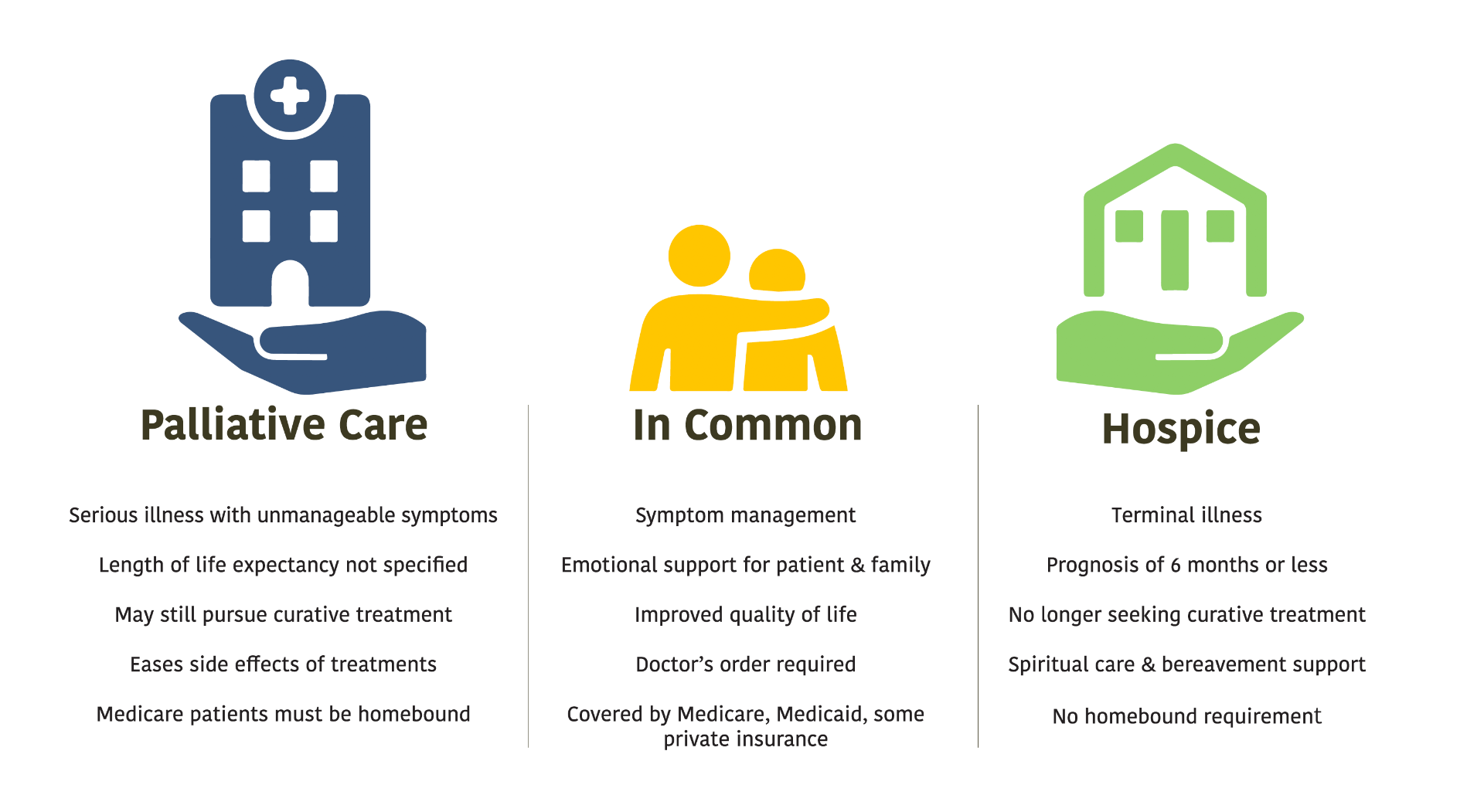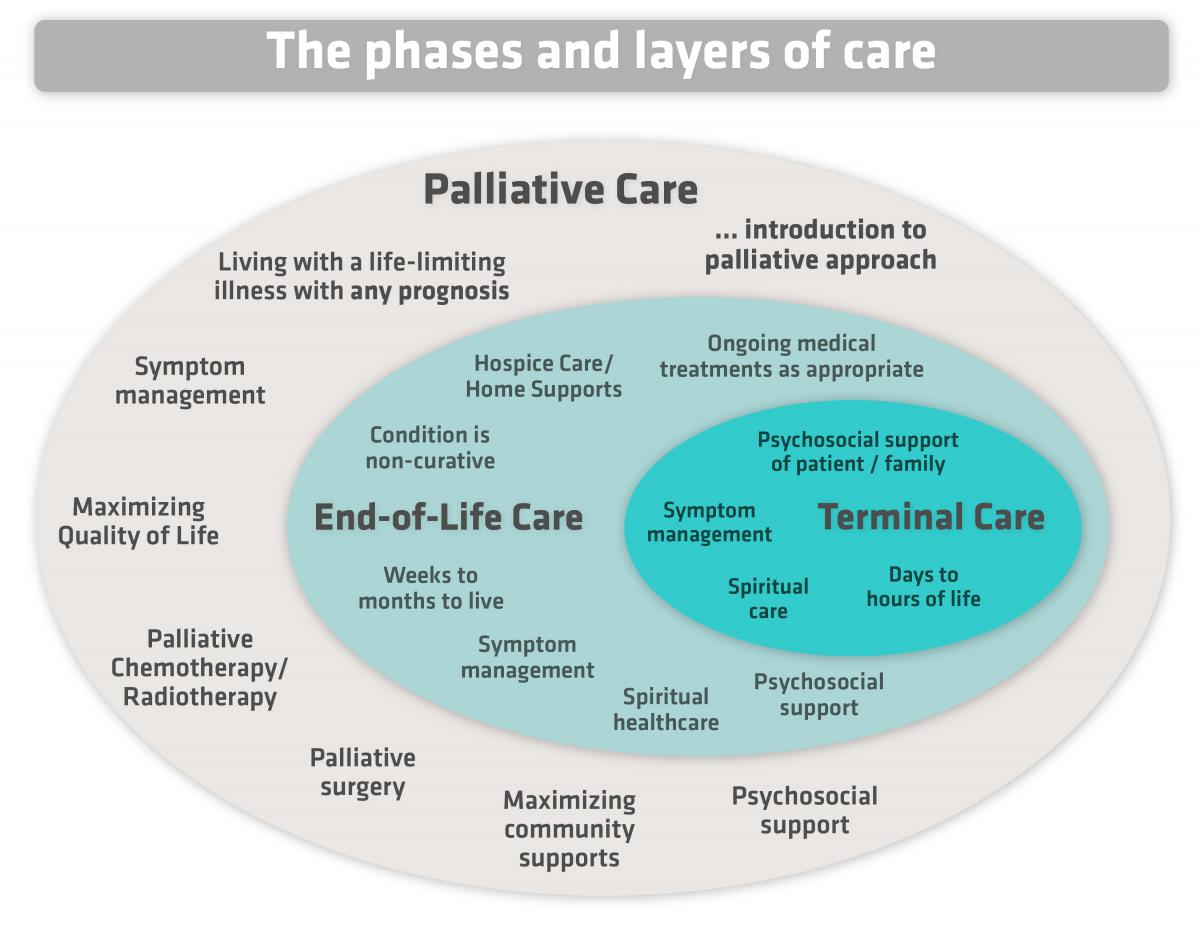what are the different levels of palliative care
Palliative care can be received at the same time as your treatment for your disease or condition. Hospice offers four levels of care as defined by Medicare to meet the varying needs of.
Palliative care specialists treat people living with many disease types and chronic illnesses.

. All these people work. Medicare defines four levels of hospice care. With 40 years of leadership in hospice and palliative care VITAS offers.
If you have Medicare Part A and Part B you dont pay. Different levels of palliative care provision and education have been recognized in the literature. Nausea vomiting and loss of appetite.
Breathing problems such as being short of breath. Palliative care is an approach that improves the quality of life of patients and their families facing the problems associated with life-threatening illness through the prevention and relief of. The goal of palliative care is to make patients more comfortable and that generally means relieving side effects and symptoms of disease and curative treatments.
This allows them to make customised plans to reflect their preferences. Ad Advance Care Planning Means You Decide The Kind Of Care Your Prefer. Yet globally palliative care development appears patchy and comparative data about the distribution of services are.
These are illnesses that cant be cured such as cancer chronic kidney disease lung disease or dementia. Palliative care is coming to be regarded as a human right. The goal is to improve your quality of life and that of your family friends and carersEnd of life and palliative.
While their applications may overlap and may all exist on a care. Therapy emotional and pastoral support. Ad Browse Discover Thousands of Book Titles for Less.
Still theres some confusion about what palliative care is what it involves who should get it and why. You receive palliative care at the same time that youre receiving treatments for your. Different levels of palliative care provision and education have been recognized in.
Healthcare professionals you and your family are often involved in making this plan. Levels of palliative care specialisation. Palliative care exists in diverse healthcare settings.
The Palliative Care Quality Collaborative PCQC is a non-profit membership organization housing to the only national unified specialty palliative care quality registry and collaborative. The palliative care team works together with the oncology care team to manage a persons care and maintain the best possible quality of life for them. Palliative care provision is the responsibility of the whole healthcare team and uses a team approach to planning and providing care tailored to meet the.
Nurses play a crucial role in its provision. Link is external cancer dementia Parkinsons. Trust VITAS To Explore Your Goals And Wishes For Comfort-Focused Palliative Care.
The terms palliative care comfort care and hospice care are often used interchangeably and vaguely. Palliative care for physical side effects might include anti-nausea medicines. The care is provided in your home nursing home assisted living or inpatient hospice facility.
Palliative care is a growing field of medicine. The goal of palliative care is to improve quality of life. Medical social workers interdisciplinary teams and a chaplain provide.
Understanding where and when hospice care is offered is the first step to understanding the choices you or your loved one has when it comes to the end-of-life journey. Palliative care specialists also provide. Palliative care is administered by a team of health care professionals including doctors nurses other health professionals chaplains volunteers and caregivers.
Trust VITAS To Explore Your Goals And Wishes For Comfort-Focused Palliative Care. These include cancer cardiac disease. 2 Every Medicare-certified hospice provider must offer all four levels of care.
End of life and palliative care provides practical help with daily tasks as well. Palliative pal-lee-uh-tiv care is treatment of the discomfort symptoms and stress of serious illness. Ad Advance Care Planning Means You Decide The Kind Of Care Your Prefer.
Palliative care is for anyone living with chronic diseases or life-limiting illnesses. Palliative care not only supports patients but also their friends and families. Palliative care is a resource for anyone living with a serious illness such as heart failure chronic obstructive pulmonary disease.
Palliative care is an approach that improves the quality of life of patients adults and children and their families who are facing problems associated with life-threatening. Therefore nurses need a set of various competencies to provide high-quality palliative care. Palliative care is specialized medical care for people living with a serious illness.
Personalized care plans by patients diagnosis.

Integration Of Oncology And Palliative Care A Lancet Oncology Commission The Lancet Oncology

Integration Of Oncology And Palliative Care A Lancet Oncology Commission The Lancet Oncology

Who Provides Palliative Care And Where Ontario Palliative Care Network

Hospice And Palliative Care In Ct Masonicare

A Palliative Care Doctor On The Front Lines Of Hospital Care Illuminates One Of The Most Important And Controversial E End Of Life Palliative Care Elderly Care

Pin On Our Consultancy And Training Services

Palliative Vs Hospice Namaste Home Health Hospice

What Is Palliative Care Hospice Palliative Care

What Is Palliative Care Hospice Palliative Care

Examples Of Short Medium And Long Term Objectives Of A Palliative Download Table








